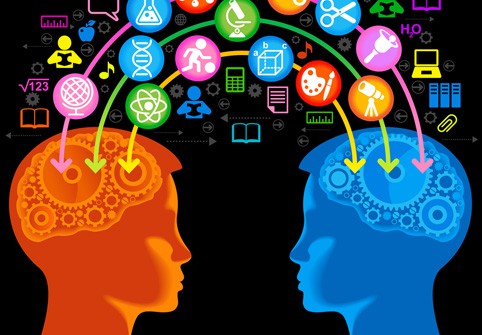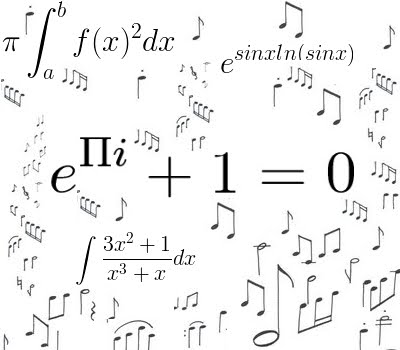Can Music Really Aid Math Learning?

By Sarah O’Reilly
 Most of us heard of the correlation between math and music – musical structures are mathematical in nature, of course, but can learning, or listening to, music really help us to learn math? Or are there specific musical techniques we can use to help our brains to process the learning techniques involved in decoding math problems?
Most of us heard of the correlation between math and music – musical structures are mathematical in nature, of course, but can learning, or listening to, music really help us to learn math? Or are there specific musical techniques we can use to help our brains to process the learning techniques involved in decoding math problems?
Back in 1991, Dr Alfred A Tomatis published a book titled “Pourquoi Mozart?” which explored the theory that listening to classical music, specifically that of Mozart, “retrained” the ear and thus allowed the brain to reorder some of its processes. This became known as the “Mozart Effect” and it wasn’t long until several other researchers were investigating the area. In 1997, Don Campbell even encouraged us to play classical music to babies in order to aid their cognitive development. Although there was much excitement surrounding the “Mozart Effect” at the time, and many studies carried out over the years, there has never been any conclusive proof that listening to classical music raises the IQ or aids thinking ability long term.
What then of learning music, rather than listening to it? Music theory is a notoriously multi-faceted, complicated but ultimately logical subject. Many of its features can be directly related to those in mathematics. At a very basic level, music is ordered by rhythm and pitch – with mathematical sequences mapping out the different modes. Diatonic scales have fixed intervals between the notes. Our modern major scale – the Ionian mode – is arranged with 5 full tone and 2 semitone intervals – every major scale, regardless of where its tonic is situated, follows exactly the same sequence.
Where a child has learned about tonality through music lessons, he has already been exposed to mathematical sequences and when presented with similar ordering challenges in math class, should find that it is not an entirely new concept. Similarly, when a music pupil has spent time learning about rhythm, he has learned to count. He is not counting numbers, per se, but he is most certainly using logic to count out the rhythms and bars, and working his way methodically through the piece. Many musical concepts have mathematical counterparts.
Music notation is strictly ordered, and certain composers, notably those of the “classical” period tended to keep their compositions exceptionally logical, writing to recognised structures. Any student exposed to these structures is already making headway in areas of mathematics that they have not yet been formally introduced to. The correlation between music and mathematics has been closely examined by Thomas Fiore and documented here.
Aside from music theory, musical mnemonics can be a very powerful learning tool for any subject – including math. Once words have been set to music, the mind connects the two and a very powerful memory is created, which can be retrieved easily. Mnemonics are universally recognised as effective, with studies showing children using them outperform others who adopted a free learning style. Adding music to the words serves to solidify the information and seal it into one easily filed and retrieved unit.
Music has many benefits – from aiding relaxation, stimulating the mind and heightening emotion, to assisting in our learning processes. Whether it really can improve our IQ remains to be seen, but to use music alongside math may well be a positive, effective step in the right direction towards eclectic learning. Utilising an interdisciplinary math/music approach to learning could be an innovative and progressive move forward in the world of education, and one which embraces the long held but seldom realised learning ideals of educational theorists such as Ivan Illich.
This article has been written by Sarah O’Reilly on behalf of Sopris Learning, which develops learning resources for children & schools. Sarah is a mother of three children and writes extensively about learning & learning difficulties of children. Sopris offers many tools & resources including an algebra assessment & a literacy curriculum.






tracy
I had a teacher in elementary school who played classical music during independent math work. I LOVED it, I would even do my homework to classical music. Not only did it help me focus with my work, it introduced me to a different genre, besides Madonna and other 80's favorites! And THEN, I was IN BAND! Boy, did music really do a number on me! :-) I FINALLY understood fractions in a whole new way! And I was able to TEACH others by using music. AMAZING!
I now teach at MY former elementary school, crazy I know. I overheard the music teacher's lesson with 2nd graders and how he equated fractions and whole, half notes....IF ALL teachers were musical inclined AND taught math combining the two.
INSPIRING!!!!
Andrea
I don't think just classical music, but instrumental music of any genre. It was pretty weird but one night I was so stressed because it was late, I was sleepy, and had to do my math homework. But I was listening to an instrumental heavy metal song while doing math, and I suddenly seemed to focus more and understood better. I was surprised at how fast I finished the homework. And I didn't understand the subject as good as I do now :)